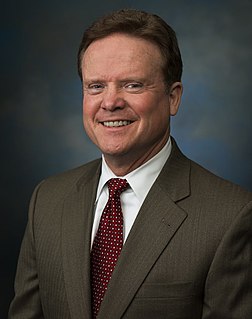Top 53 Quotes & Sayings by Jim Webb
Explore popular quotes and sayings by an American politician Jim Webb.
Last updated on December 21, 2024.
From the time I left the Marine Corps after serving as an infantry platoon and company commander in Vietnam, I decided that I would focus on immediate goals that inspired me to devote all of my energy to them, rather than putting together the more cautious and traditional building blocks of a predictable career.
It's hard for me to think about this, but I first went to Southeast Asia as a Marine more than 40 years ago, as a young Marine. I was on Okinawa and then in Vietnam. I've returned in many different hats, which I think has helped me to form my own views about policy out there. I've spent a good bit of time in this region as a journalist.


















